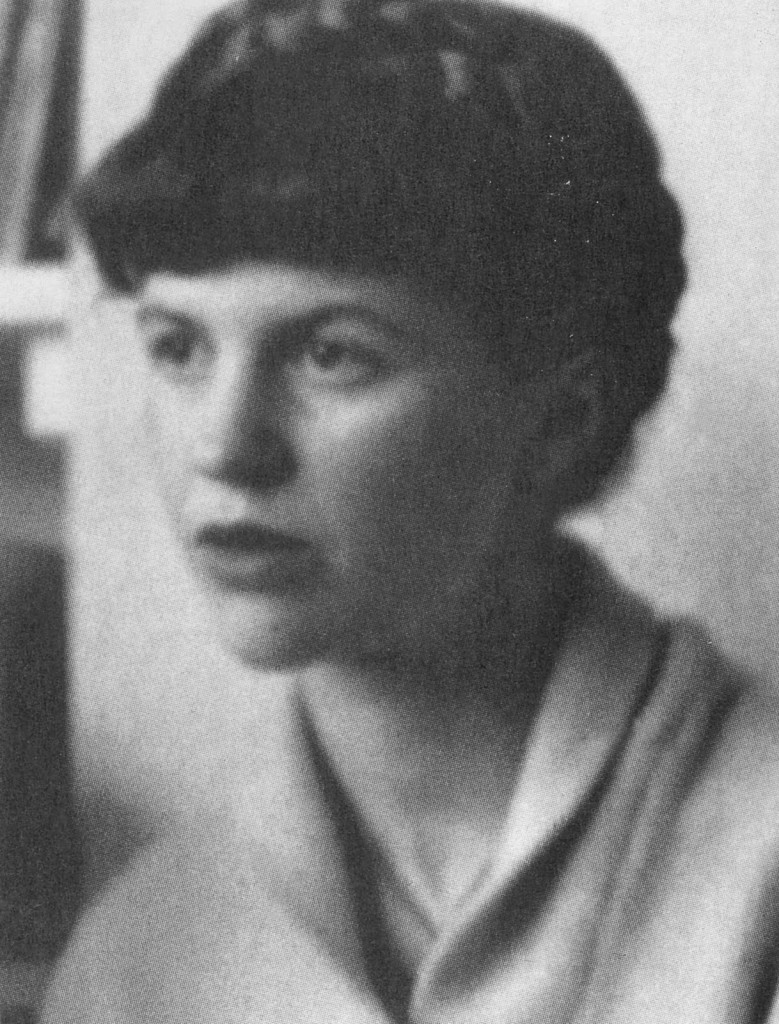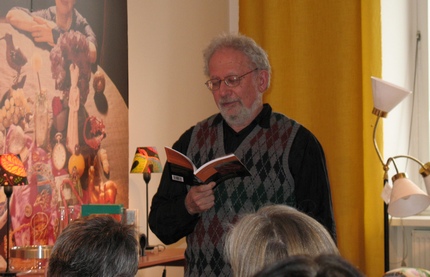The shadow of her father: an anthropologist’s take on Sylvia Plath
Tuesday, August 28th, 2018

Getting “back, back, back to you”: Sylvia Plath with her parents.
The publication of Sylvia Plath’s last letters to her psychiatrist and other letters, too, has put the controversial Plath, one of the top American poets of the twentieth century, back in the news.
We’ve published a couple guest posts from anthropologist Mark Anspach (here and here), and one Q&A about his new book, Vengeance in Reverse. Mark had thoughts about the Plath legend – with a Girardian twist. He has given us permission to publish his words:
The death of her father when she was eight left Sylvia Plath – in the words of her poem “The Colossus” – “married to shadow.” On February 11, 1963, Plath widowed her estranged husband, poet Ted Hughes, by committing suicide at age 30.
Many blamed Hughes for his wife’s death. At the time, he was having an affair with a mutual friend who went on to commit suicide herself. Why did the women who were drawn to him take their own life?
“Every woman adores a Fascist,” Plath wrote in one of her most famous poems. “The boot in the face, the brute/Brute heart of a brute like you.” To his accusers, Hughes was a brute who kissed the girls and made them die. But Plath’s suicide likely had much deeper roots.

Death as sequel
In Mad Girl’s Love Song: Sylvia Plath and Life Before Ted, Andrew Wilson asserts that she had already tried to cut her throat when she was ten years old. Earlier biographies and the poems themselves suggest that she was traumatized at a tender age by her father’s death.
In fact, the line “Every woman adores a Fascist” comes from the poem “Daddy.” Her father is the jack-booted brute who bit her “pretty red heart in two,” the “panzer-man” who scared her with his “neat moustache” and “Aryan eye,” his Luftwaffe and swastika. At least that is what the narrator says in this deliberately over-the-top poem.
In The Death and Life of Sylvia Plath, biographer Ronald Hayman suggests that she had actually worshipped her father when she was a little girl, doting on his praise. A hard-working, studious blacksmith’s son who immigrated to America as a teenager and forged an academic career teaching German and biology, Otto Plath was not a Nazi.
But he was an iron-willed domestic tyrant who subjugated Sylvia’s mother – a bright former student twenty-one years his junior – and may well have had a sadistic streak. To show off his disdain for the conventional prejudices that govern human behavior, Hayman writes, “he used to skin a rat, cook it and eat it in front of his students.”
The most brutal thing Otto did in Sylvia’s eyes was to abandon her by dying early. “Daddy” presents her first famous suicide attempt – the one described in her novel The Bell Jar – as an effort to be reunited with him. But after the doctors “stuck me together with glue,” she writes, “then I knew what to do”:
I made a model of you,
A man in black with a Meinkampf look
And a love of the rack and the screw.
And I said I do, I do.
 The man in black with the Meinkampf look was Ted Hughes, perennially decked out in his bohemian poet’s uniform: a regulation black sweater and black pants. She knew of his sadistic streak when she married him, confiding to a horrified mentor about his habit of “bashing people around.” But that didn’t stop her from saying “I do.”
The man in black with the Meinkampf look was Ted Hughes, perennially decked out in his bohemian poet’s uniform: a regulation black sweater and black pants. She knew of his sadistic streak when she married him, confiding to a horrified mentor about his habit of “bashing people around.” But that didn’t stop her from saying “I do.”
Or rather “I do, I do” – as if she were wedding two men: not just Ted, but Daddy. For a poet who could write “I dream that I am Oedipus” (“The Eye-mote”) and blithely address her father as “bridegroom” (“The Beekeeper’s Daughter”), psychoanalyzing herself was easy – maybe too easy.
When she tells her father “I made a model of you,” she seems to mean that Ted was a stand-in for the man she really desired, the way a model train is a replica of the original. But the words “I made a model of you” may have a broader scope. Sylvia could easily have taken Otto’s premature death as a model for her own suicidal behavior, as the following lines from “Daddy” hint:
I was ten when they buried you.
At twenty I tried to die
And get back, back, back to you.
By saying she was ten rather than eight, Plath conflates the year of her father’s death and that of her own first suicidal gesture as revealed in Andrew Wilson’s book – although in “Lady Lazarus” she would allude obliquely to this “first time” as “an accident.”
 Yet both poems put the emphasis on repetition: “I have done it again./One year in every ten,” she announces in “Lady Lazarus,” prefiguring her ultimate suicide at age 30. “Daddy” allows us to see her three attempts to end her own life – at ten, twenty, and thirty – as three efforts to get “back, back, back” to her father.
Yet both poems put the emphasis on repetition: “I have done it again./One year in every ten,” she announces in “Lady Lazarus,” prefiguring her ultimate suicide at age 30. “Daddy” allows us to see her three attempts to end her own life – at ten, twenty, and thirty – as three efforts to get “back, back, back” to her father.
But if the repetition is rooted in imitation – if she made a model of her father – then she did not just want to go back to him; she wanted to do the same thing he did. “Though he didn’t quite kill himself,” Ronald Hayman notes, “he had set a suicidal example.” At age 50, when he developed symptoms similar to those of a friend who was dying of cancer, Otto Plath stubbornly refused to see a doctor.
His friend had undergone several futile operations, and Otto, who prided himself on his independent-mindedness, was determined to avoid unnecessary surgery. He had diagnosed his own cancer and did not want to put himself in the hands of doctors. If he was destined to die of cancer, so be it. He would accept his fate like a man.
Except that he did not have cancer at all, but diabetes. The condition could have been treated with insulin if only it had been caught in time. Four years later, when he complained of a stubbed foot, his wife saw that the toes were black, with red streaks going up the ankle. His gangrenous leg had to be amputated. A few weeks later he was dead.
According to Hayman, Sylvia regarded her father’s death as suicidal and “started to think about her own death as the unavoidable sequel to his.” This suggests that Sylvia Plath’s death wish was what the late Stanford theorist René Girard would call a mimetic desire – one imitated from somebody else.

He knew.
In his classic work Violence and the Sacred, Girard says the objects we crave most are prized less for their intrinsic value than for the importance conferred on them by an admired model: “If the model, who is apparently already endowed with superior being, desires some object, that object must surely be capable of conferring an even greater plenitude of being.”
When Sylvia was a little girl, she looked up to her father as the most formidable man she knew. Because of his early death, that is the way he remained forever fixed in her memory – as the giant of the poem “Colossus.”
Nothing could be less intrinsically desirable than death. But if her father, that forbidding giant of a man, willingly embraced it, then death might well have appeared to Sylvia as the only object capable of conferring on her the greater plenitude that in her deep unhappiness she felt she lacked.











